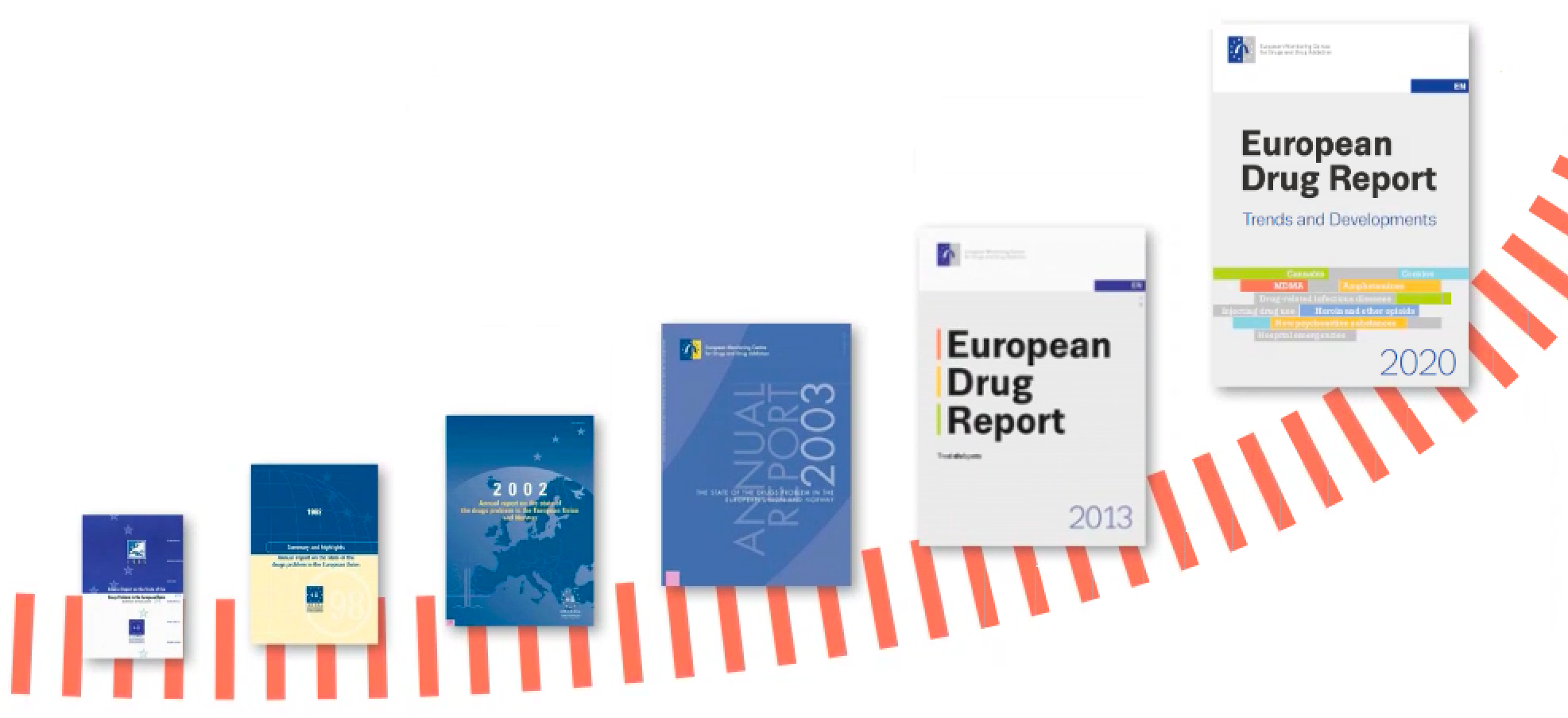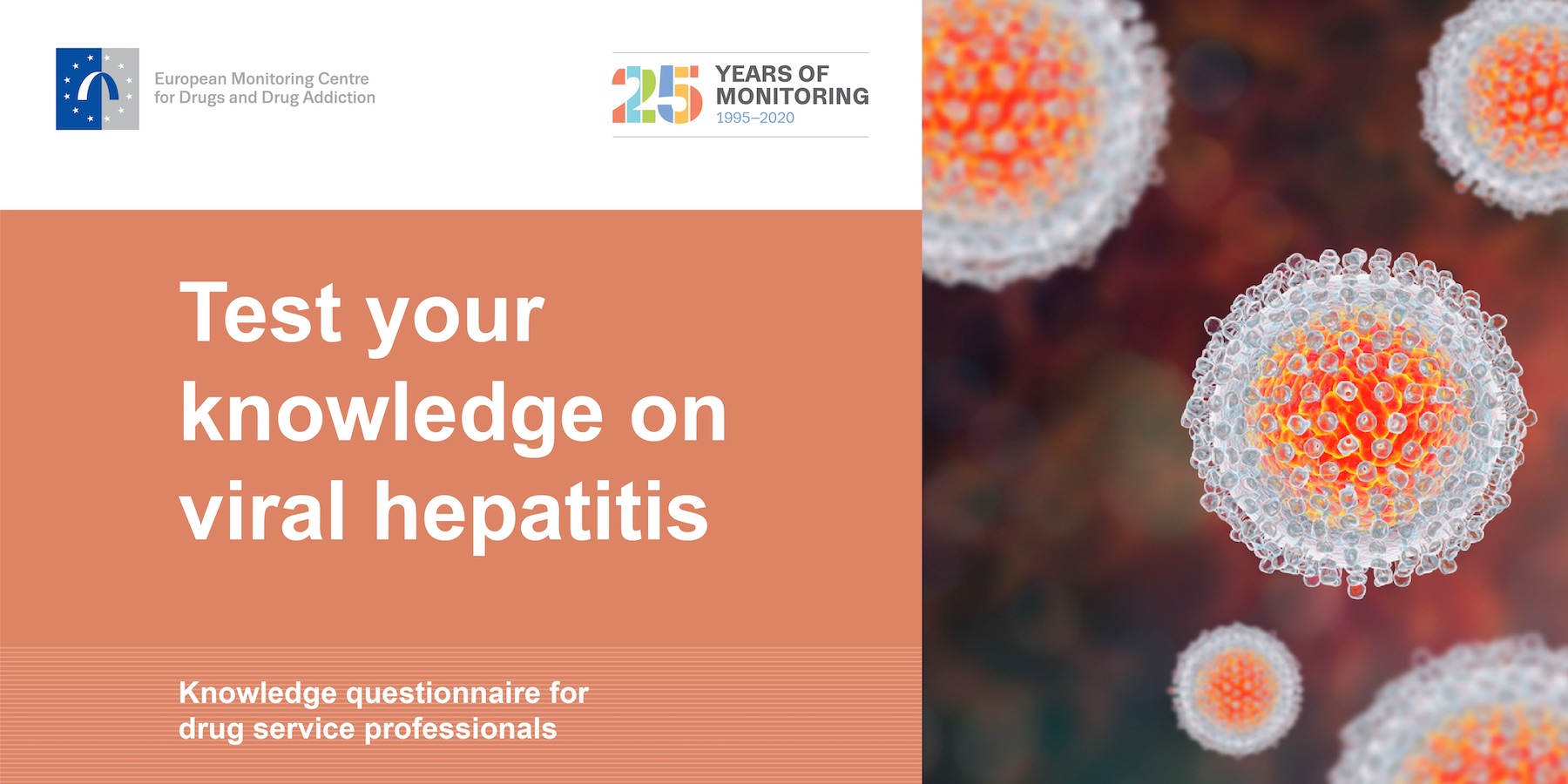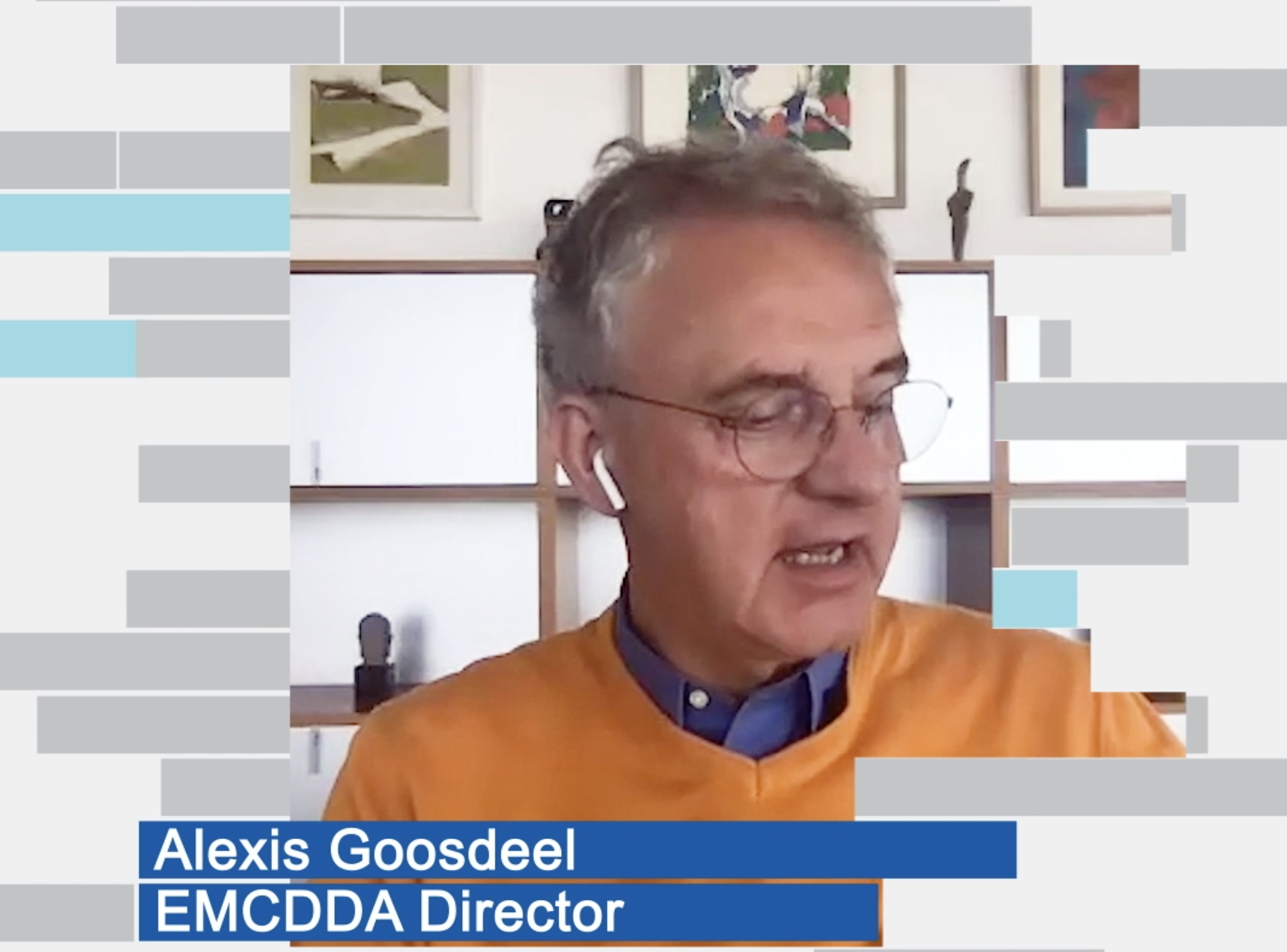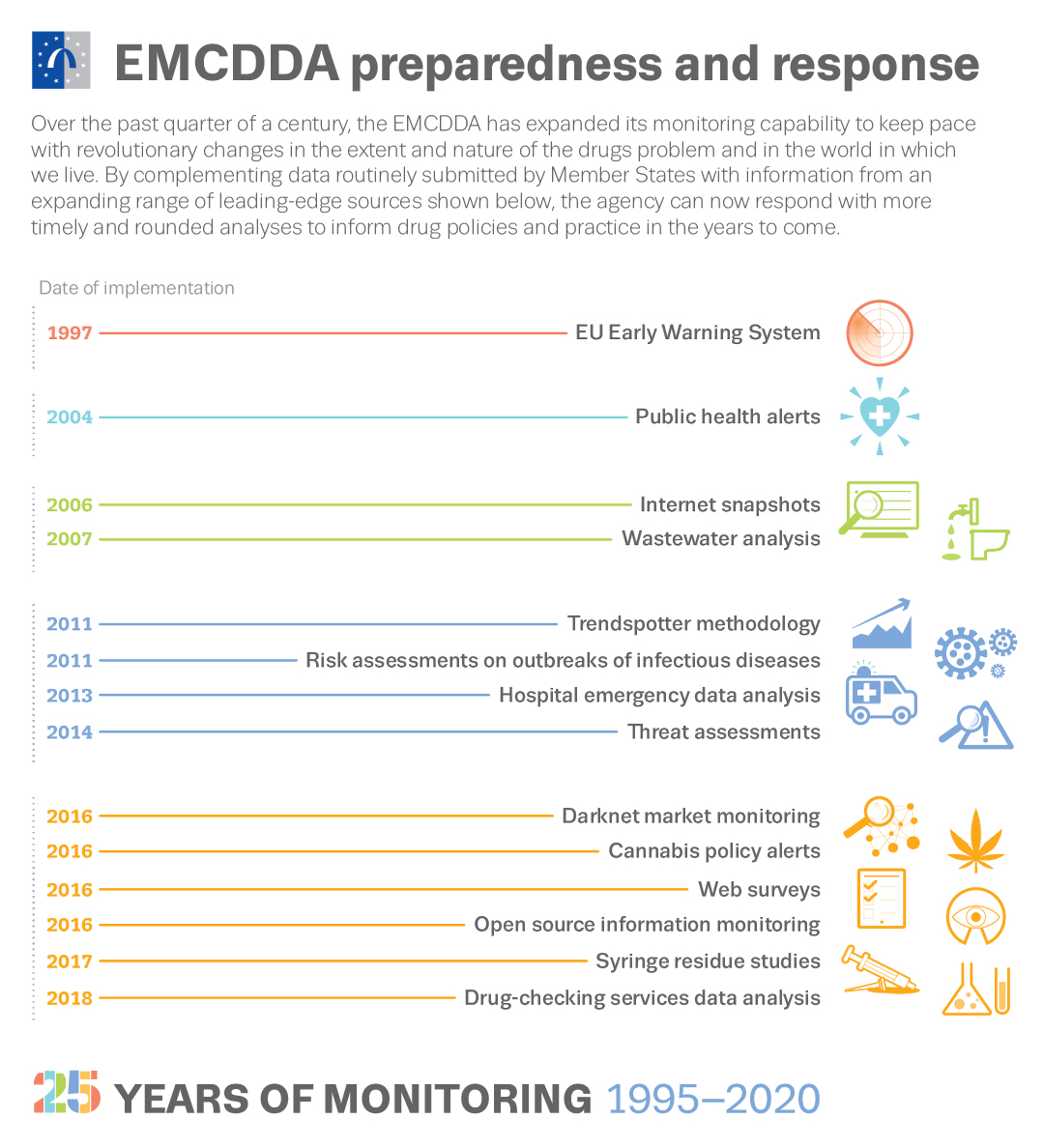A quarter of a century providing evidence for better policies and actions on drugs in Europe
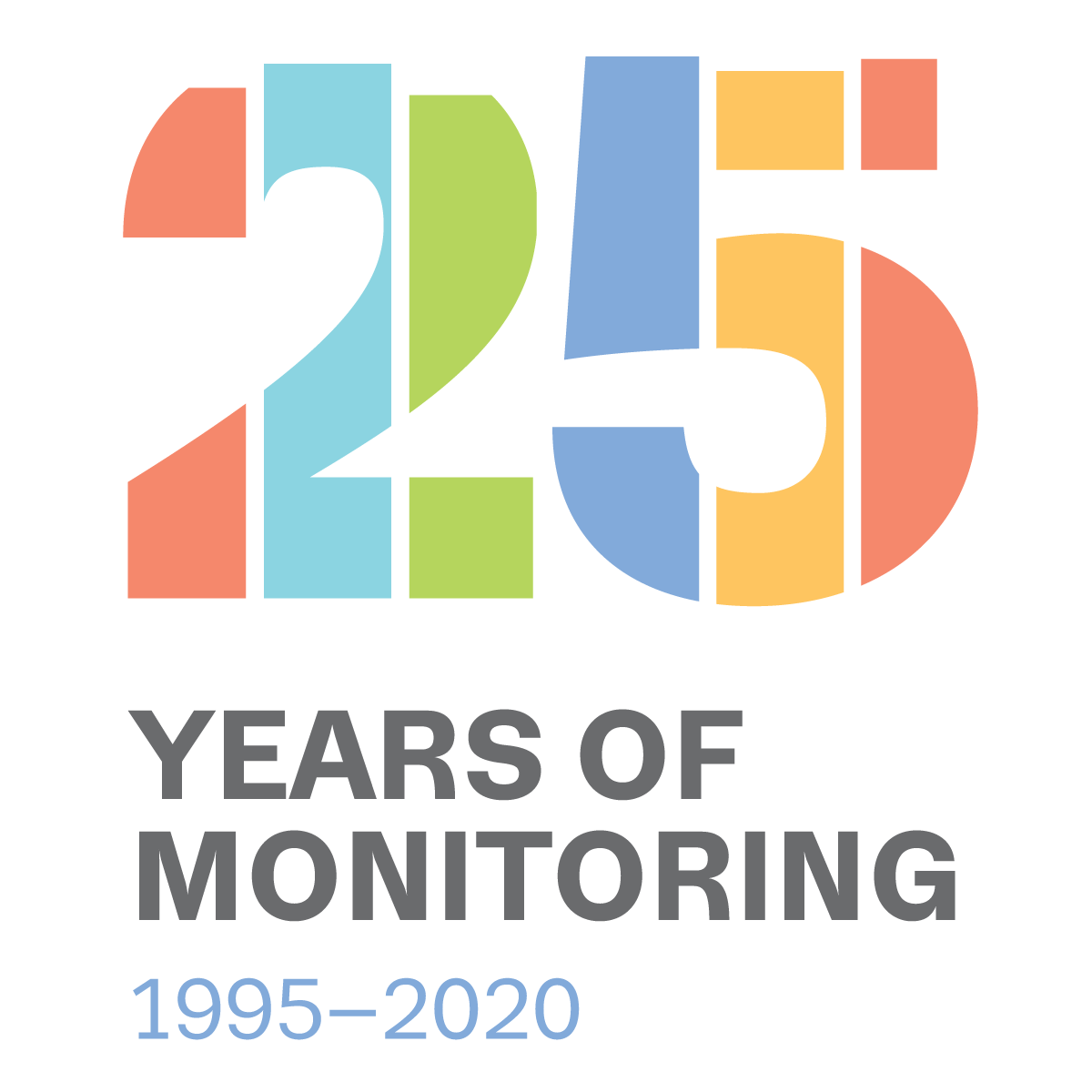
In 2020, the EMCDDA celebrates 25 years of monitoring the drug situation in Europe. In the quarter of a century since it embarked on its first work programme, the agency has witnessed radical changes, both in the extent and nature of the drugs problem. Keeping pace with a dynamic drug phenomenon in a changing world, while remaining relevant to policy and practice, requires constant reflection, innovation and agility. Looking to the future and the new challenges the agency will face, 2020 is a time to take stock of the progress made so far. We will post here regular updates on the activities we have planned to celebrate this special anniversary.
December
Winding down a very special year
At the start of this year, when we embarked on our 25 years of monitoring celebrations, we knew it was going to be a special 12 months. Little did we know then just how unusual and challenging the year would turn out to be… As we wind down the year, we have put together a video looking back at the highlights of our 25-year milestone. Take a look also at our ‘Voices’ videos where members of our team and wider community share stories on what the EMCDDA means to them. #emcdda25
Highlights video
Voices videos
Message from the Director
November
12 November 2020: 25 years of collaboration with ESPAD
The latest European data and analysis on substance use and risk behaviours among 15 and 16-year-old school students are released today in the context of a 25-year collaboration between the European School Survey Project on Alcohol and Other Drugs (ESPAD) and the EMCDDA. The two organisations have been working together since 1995, with a formal cooperation framework signed in 2008. ESPAD data have become an increasingly important component in the EMCDDA’s reporting on the European drug situation, providing invaluable analytical insights into substance use in this age group. The findings in the new report are based on a survey in 35 European countries, conducted by ESPAD in 2019. The latest round included a set of core questions to help track long-term trends as well as new topics, such as e-cigarette smoking, problem gambling, high-risk cannabis use and self-perceived problems with social media use and gaming.
October
30 October 2020: 25 years of monitoring prevention
Looking back at the past 25 years, much progress has been made in Europe in developing responsible and evidence-based interventions in substance use prevention. Yet, prevention practices for which there is little, or no, evidence of effectiveness are still being implemented in school and community settings today. This is why it is crucial to develop a professional prevention workforce that values prevention science and is trained in, and knowledgeable about, approaches that are empirically tested, safe and likely to yield results. This month, Gregor Burkhart, Principal scientific analyst for prevention at the EMCDDA, looks back at some of the key milestones in the agency's monitoring in this field. Starting from an amorphous concept in the early years, he describes today's prevention field as more scientifically sound, rooted in clear concepts and capable of improving real-life practice and decision making.
September
30 September 2020: A journey through 25 years of annual reporting
This month, the EMCDDA's Scientific Director takes us on a journey through 25 years of annual reporting on the drugs problem in Europe. The journey begins with the first report describing the drug situation in 1995 and leads us, over key milestones, to the latest European Drug Report 2020. Looking back on a quarter of a century, two things stand out: first, Europe's drugs problem has evolved considerably over this period; and second, this evolution has been accompanied by a dramatic increase in the quantity and quality of the information available on the topic. The article describes reporting through various EU enlargements, and on a rapidly changing drug landscape, and shows how information needs for informed policies have evolved over time.
Download the brochure >>
Video: 25 years of annual reporting on the drugs problem in Europe >>
August
31 August 2020: International Overdose Awareness Day
Over the past 25 years, the EMCDDA has been monitoring the number and characteristics of drug-related deaths in Europe. This year, to mark International Overdose Awareness Day, the agency has released new online resources looking at the facts and myths around overdose and take-home naloxone (THN), including an overview of THN programmes in Europe and an online knowledge questionnaire. Today, we also look back on a quarter of a century of work in this area, including the development of a European definition of drug-related deaths and key approaches to reduce opioid-related fatalities.
July
28 July 2020: World Hepatitis Day
Staff working in drug services play a vital role in reaching people at risk of hepatitis infections and in linking them to care. On World Hepatitis Day, the EMCDDA showcases its hepatitis knowledge questionnaire, designed to help drug service staff refresh their knowledge on viral hepatitis, identify training needs and, ultimately, inform people who inject drugs about infection risks and prevention, available tests and treatment and how to find help. Today, we also look back on 25 years of our work in this area and how, through a harm reduction initiative, we are now providing practical tools to support countries in promoting hepatitis C virus testing and care through drug services.
June
26 June 2020: International day against drug abuse and illicit trafficking
In an interview to mark 26 June 2020, #WorldDrugDay, EMCDDA Director Alexis Goosdeel offers insight into the recent challenges brought about by the COVID-19 pandemic, along with some of the innovations seen.
Also on this day, we are kicking off a new digital storytelling campaign, where we will be inviting staff members and stakeholders to share what the EMCDDA means to them. The 'Voices' campaign is one of the activities the agency is running for its ‘25 years of monitoring’ celebration. Watch this space for more to come.
May
25 years of monitoring drug-related infectious diseases in Europe
For the past quarter of a century, the EMCDDA has been monitoring drug-related infectious diseases in Europe and assessing the risks faced by people who inject drugs. This has helped guide evidence-based interventions, reduce transmission and save lives.
This month, marking the EMCDDA’s 25 years of monitoring milestone, we bring you the latest update on drug-related infectious diseases in Europe among people who inject drugs. Released during European Testing Week, the report stresses that early diagnosis through testing, and improving links to treatment and care, are crucial steps towards protecting this vulnerable group and reaching global health goals.
April
EMCDDA preparedness and response to a fast-moving drugs problem
Revolutionary changes, both in the extent and nature of the drugs problem, and in the world in which we live, have called for constant reflection, innovation and agility to keep pace with new developments and rethink existing routines. This is why the EMCDDA has adopted a multi-indicator approach to monitoring in its response to a fast-moving drugs problem.
This month, to mark the EMCDDA’s 25 years of monitoring milestone, we look at how the agency has strengthened and expanded its monitoring tools, on the premise that no single measure can provide a full picture of the drug situation. By complementing data routinely submitted by Member States with information from an expanding range of leading-edge sources, the agency can now respond with more timely and rounded analyses to inform drug policies and practice in the years to come.
March
25 years of monitoring — selected events from the EMCDDA’s international cooperation history
Drugs have long been a cross-border phenomenon. As drug problems in Europe are increasingly linked to, and influenced by, global developments, it is crucial that our analysis of trends and developments be placed in the wider international context. This is why working with external partners is a key area of our work, increasing our understanding of the external dimension of the drug phenomenon as well as boosting our preparedness to react quickly to new threats.
Over the last 25 years, the EMCDDA has forged a variety of partnerships with a wide range of international organisations, EU agencies and third countries (non-EMCDDA members). These activities are currently guided by the EMCDDA International Cooperation Framework, which charts the direction of work in this area for the period 2018–25, and by the EMCDDA Strategy 2025, which identifies partnerships as one of the agency’s main business drivers.
This month, to mark the EMCDDA’s 25 years of monitoring celebration, we have published a commemorative timeline of selected events in our international cooperation history. Take a walk through some of the key moments and milestones.
February
Timeline: 25 years of monitoring — selected events from the EMCDDA’s history
January
Message from the Director: a quarter of a century providing evidence for better policies and actions on drugs in Europe
This year, the EMCDDA celebrates 25 years of monitoring the drug situation in Europe. In the quarter of a century since the agency embarked on its first work programme in 1995, we have seen revolutionary changes, both in the extent and nature of the drugs problem, and in the world in which we live. Keeping pace with an increasingly dynamic drug phenomenon, while remaining relevant to policy and practice, requires constant reflection, innovation and agility. This is why we will be developing a new business model as we pursue our vision to contribute to a healthier and more secure Europe.









 EMCDDA home page
EMCDDA home page


